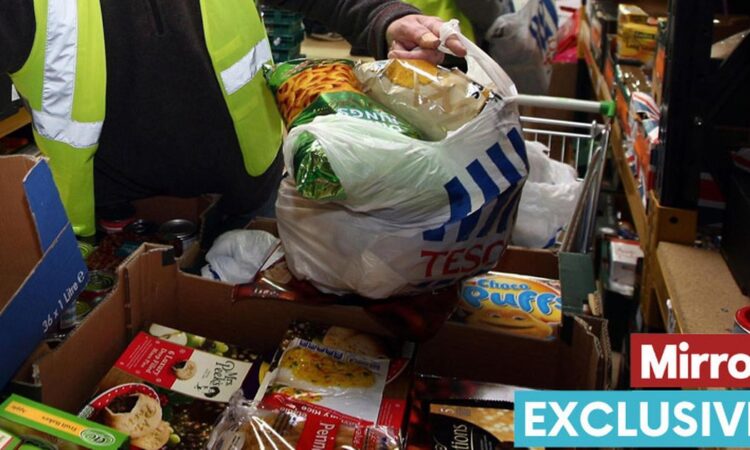
Other military personnel are also taking second jobs alongside their military duties to help them pay bills, working as delivery drivers and in McDonald’s at weekends
Hundreds of troops are using food banks to feed their families – and even the SAS are hit by the crisis.
Some military personnel are also taking second jobs alongside their military duties to help them pay bills during the current cost of living crisis. Personnel are working as delivery drivers and some young soldiers are known to have worked in McDonald’s at weekends and in the evenings.
One former senior officer has described the revelation as a “failure of leadership” and said the situation for many service families was “shocking”. Unofficial food banks are known to be operating inside RAF Benson in Oxfordshire and RAF Coningsby in Lincoln, one of the most important military bases in the country and home to two frontline jet squadrons.
Hundreds of other troops or their spouses are all known to be using food banks around the UK. There are food banks in every major garrison town, including Catterick, North Yorks, Colchester, Essex, and Bulford and Tidworth, in Wilshire used by military personnel. Personnel based at large Royal Navy bases in Portsmouth and Plymouth are also having to turn to charities to feed their families.
Even troops at the SAS’s base in Hereford are understood to be using food banks in the local town so they can put a meal on the table. A member of the SAS said that personnel at the elite regiment’s headquarters in Hereford said personnel were known to have used food banks.
The source said: “Special forces troops get extra pay which helps but there are soldiers on the base who need that extra help. Some are members of the regiment, others are attached to the regiment. I know a lot of people who struggle financially.” Junior ranked troops or the equivalent such as privates, lance corporals and corporals – and the equivalent in the Royal Navy and RAF – who have young families are suffering most.
A private soldier in the army earns around £23,500 which increases to almost £31,000 for a lance corporal. But one food bank volunteer at an RAF base said both senior ranks and officers have also asked for food parcels because of financial problems caused by the cost of living crisis. Our investigation has found that up to 30 families visit at a food bank inside an RAF base in Oxfordshire every week.
Families received food parcels worth up to £50 and included frozen meat packs, fruit, vegetables and canned products, as well as treats for children like crisps and chocolate. One volunteer at a food bank in Plymouth said: “We do get members of the armed forces coming to us but we have a policy of not asking too many questions because for a lot of people it can be a difficult issue.”
We have spoken to several families involved in the distribution of free food amongst service personnel. The spokesperson for Services Outreach Support which runs a food bank which supplies food to personnel on RAF bases in Oxfordshire said many military families were struggling.
They said: “ We deliver a number of food parcels to families on an RAF base in Oxfordshire and the rest of the food is set up outside a service house every Friday for anyone who might be struggling. “We have around 30 people coming every week needing help. We don’t ask any questions and we are trying to make sure no one goes hungry.
“I was told by a senior officer that there was no need to offer free food because everyone on the base is earning a wage. But there are plenty of junior personnel with families struggling to pay the bills. I think it’s now finally accepted that there is a problem. There are also people doing two jobs to make ends meet.”
Colonel Phil Ingram, a former British Army commanding officer said: “It is shocking that Service families are having to use food banks. Poor housing, isolated locations impacting job opportunities and in some places terrible public transport all contribute to shocking conditions for some service families. This is a failure in leadership and it is time defence really started to put its people first.”
A Ministry of Defence spokesperson said: “Our people matter, which is why we have taken unprecedented steps to ensure the biggest pay increase in 20 years of a 9.7% increase for our junior soldiers, sailors and aviators. We have also frozen daily food costs, increased commuting allowances, provided generous accommodation subsidies, and ensured our personnel can save up to £3,400 per child per year by extending wraparound childcare support for them.
“This is in addition to the government’s Cost of Living package for anyone who needs help to ensure an average of £3,300 support per household, £1 billion of extra funding for the Household Support Fund, and freezing fuel duty for a thirteenth consecutive year.”





